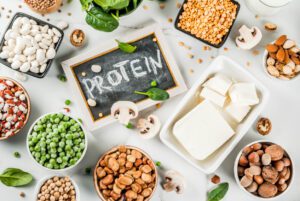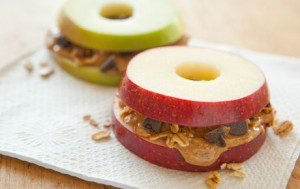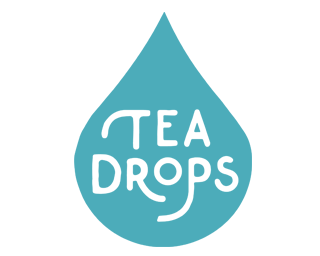A Guide to Whole Food Vegan Protein Sources
November 27, 2023Plant-based diets have become increasingly popular in recent years due to their numerous health and environmental benefits. If you’re looking to increase your protein intake on a vegan diet, there are many whole food options available. Here are ten vegan protein sources that are both nutritious and delicious:

Lentils: Lentils are a great source of protein, fiber, and iron. They can be used in a variety of dishes, including soups, stews, and salads. One cup of cooked lentils contains approximately 18 grams of protein.
Chickpeas: Chickpeas, also known as garbanzo beans, are a versatile legume that can be used in many different recipes. They are a good source of protein, fiber, and other essential nutrients. One cup of cooked chickpeas contains approximately 15 grams of protein.
Quinoa: Quinoa is a gluten-free grain that is high in protein, fiber, and other essential nutrients. It can be used in a variety of dishes, including salads, stir-fries, and casseroles. One cup of cooked quinoa contains approximately 8 grams of protein.
Tofu: Tofu is a soy-based product that is high in protein and low in fat. It can be used in a variety of dishes, including stir-fries, soups, and salads. One cup of tofu contains approximately 20 grams of protein.
Tempeh: Tempeh is a fermented soy product that is high in protein and other essential nutrients. It can be used in a variety of dishes, including sandwiches, stir-fries, and salads. One cup of tempeh contains approximately 31 grams of protein.
Seitan: Seitan is a wheat-based protein that is often used as a meat substitute. It is high in protein and low in fat. One serving of seitan contains approximately 25 grams of protein.
Hemp Seeds: Hemp seeds are a great source of protein, fiber, and other essential nutrients. They can be used in a variety of dishes, including smoothies, salads, and baked goods. One ounce of hemp seeds contains approximately 9 grams of protein.
Chia Seeds: Chia seeds are a great source of protein, fiber, and other essential nutrients. They can be used in a variety of dishes, including smoothies, puddings, and baked goods. One ounce of chia seeds contains approximately 4 grams of protein.
Almonds: Almonds are a great source of protein, fiber, and other essential nutrients. They can be used in a variety of dishes, including smoothies, salads, and baked goods. One ounce of almonds contains approximately 6 grams of protein.
Peanut Butter: Peanut butter is a great source of protein, fiber, and other essential nutrients. It can be used in a variety of dishes, including smoothies, sandwiches, and baked goods. Two tablespoons of peanut butter contain approximately 8 grams of protein.
Here are some easy ways to include these vegan protein sources in your diet:
Add lentils or chickpeas to your favorite soup or stew recipe.
Use quinoa instead of rice in your stir-fry dishes.
Make a tofu scramble for breakfast instead of eggs.
Use tempeh instead of meat in your favorite sandwich recipe.
Add seitan to your stir-fry dishes instead of meat.
Sprinkle hemp seeds or chia seeds on top of your favorite salad.
Snack on almonds or add them to your favorite trail mix recipe.
Spread peanut butter on toast or use it as a dip for apple slices.
There are many delicious and nutritions vegan protein sources available. Incorporating these foods into your diet is easy and can help you meet your daily protein needs.
Consuming whole food vegan protein sources into your diet contributes to overall health, environmental sustainability, and ethical eating. Experiment with new plant-based recipes and some of these delicious whole foods vegan protein options into your diet for a balanced and healthful way of eating.





